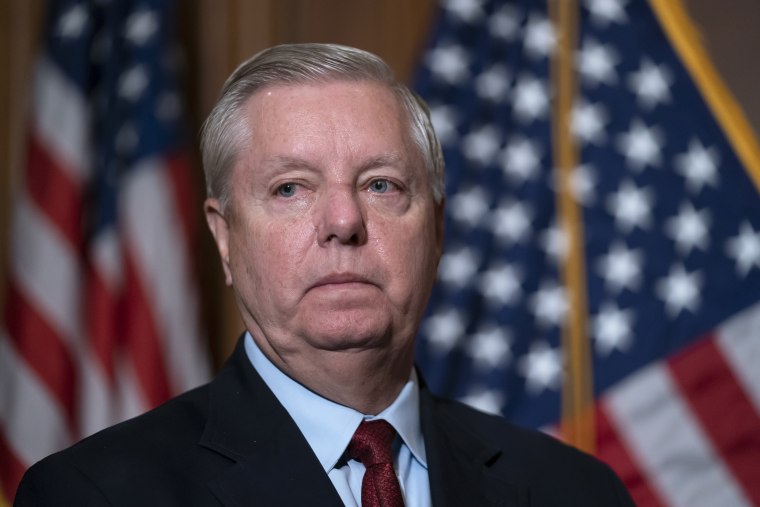Last week, a special grand jury hearing evidence in an investigation into possible 2020 election interference in Georgia issued subpoenas to several people close to Donald Trump — including Republican Sen. Lindsey Graham. Almost immediately thereafter, the South Carolinian’s lawyers said Graham didn’t intend to honor the subpoena, dismissing the local investigation as “all politics.”
Yesterday, as Reuters reported, a judge took the next obvious step and told Graham he has no choice but to testify.
Fulton County Superior Court Judge Robert McBurney ordered that Graham will be required to testify on Aug. 2. The judge’s certification filed on Monday described Graham as a “necessary and material witness” to the grand jury probe. The development was reported earlier by WSB-TV.
The description of the GOP senator as a “necessary and material witness” is more than fair given the circumstances. As we recently discussed, it was about a week after the 2020 presidential race was called when Brad Raffensperger, Georgia’s Republican secretary of state, accused Graham of contacting him directly to question the validity of legally cast ballots. The GOP senator conceded that they had a conversation, but he called the underlying allegation “ridiculous.”
But Raffensperger held firm, telling CNN in November 2020 that the “implication” of Graham’s message was, “Look hard and see how many ballots you could throw out.”
With this in mind, it was hardly a shock when the Fulton County District Attorney’s office, investigating possible election interference, said it wanted to hear Graham’s side of the story.
As for the pushback from the senator’s attorneys, Team Graham insisted last week that the Fulton County district attorney’s office was “engaged in a fishing expedition and working in concert with the January 6 Committee in Washington,” adding that if Graham cooperated, his testimony “would immediately be shared” with the bipartisan House select committee.
It’s not surprising this didn’t persuade the local judge. Circling back to our earlier coverage, it’s not up to those subpoenaed by a grand jury to decide whether or not the inquiry is legitimate. Subpoenas are not casual invitations; they’re legal commands. Graham may see this as a “fishing expedition,” but his impressions aren’t especially relevant.
Indeed, imagine how he’d respond if the Senate Judiciary Committee issued a subpoena, only to have a relevant witness ignore it, dismissing the line of inquiry as “all politics.”
What’s more, as Graham and his legal counsel really ought to know, grand jury testimony is kept under wraps, and it would be illegal for the district attorney’s office to share the information with anyone, including Jan. 6 investigators. In other words, the South Carolina Republican and his team effectively argued that he’s reluctant to honor a subpoena because he suspects local prosecutors will commit a crime.
That’s a rather outlandish accusation to make — without proof — in the form of a clumsy prediction.
Graham’s attorneys also emphasized that the senator is not a target of the investigation in Georgia, but rather, “simply a witness.” Of course, if that’s true, there’s no reason for him to fight so vehemently against cooperating.
Either the Republican senator has something to hide or he doesn’t.
At this point, Graham will be expected to testify on Aug. 2, which is three weeks from tomorrow. Whether, and to what extent, the South Carolinian intends to keep fighting against the subpoena remains to be seen.

